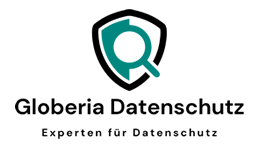A data protection audit requires a variety of documents and information to conduct a comprehensive review of a company’s data protection measures. These documents are crucial to assess compliance with data protection regulations and the effectiveness of the measures implemented.
- Data protection policies and procedures: These documents contain the company’s internal policies and procedures for protecting personal data. They provide information on how the company organizes and ensures data protection.
- Processing records: According to Article 30 GDPR, companies must maintain records of all processing activities. These records contain detailed information about the type of data processed, the purposes of the processing, the data subjects and the security measures.
- Technical and organizational measures (TOMs): These documents describe the measures the company has taken to ensure the security of the processing of personal data, as required by Article 32 GDPR.
In addition to these basic documents, other information may be required depending on the scope and objective of the audit. This includes reports of previous audits, data protection incidents and action plans to remediate identified vulnerabilities.
- Training materials: These materials document the training activities that the company has carried out for its employees to raise awareness of data protection and promote compliance.
- Reports on past audits and data protection incidents: These reports help evaluate the history and effectiveness of past data protection measures and determine whether recommended improvements have been implemented.
- Access logs and security incidents: This information is important to verify how the company monitors access to personal data and handles security incidents.
Providing these documents and information is critical to the success of the data protection audit. They enable auditors to conduct a comprehensive assessment of data protection measures and provide informed recommendations for improvement.
- Data processing agreements: Contracts with third parties that process personal data on behalf of the company must also be reviewed. These contracts should ensure that the third parties adhere to the same data protection standards as the company itself (Article 28 GDPR).
- Consent forms: Documents proving the consent of the data subjects to the processing of their personal data are also required. These consents must comply with the requirements of Article 7 GDPR.


